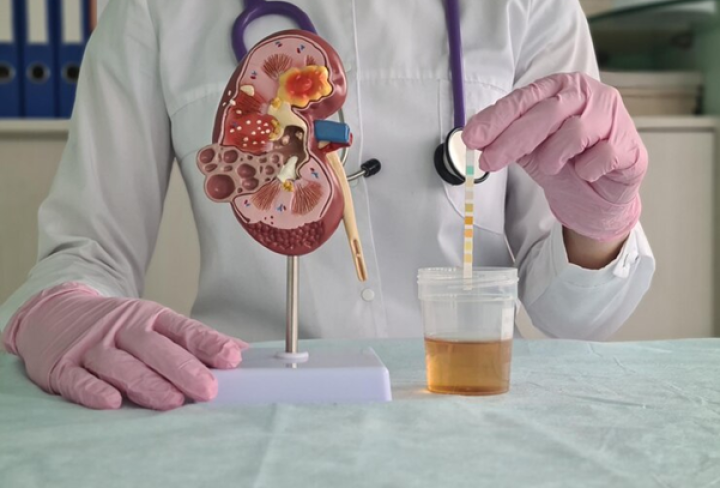Hematuria or blood in urine is a common issue in children. This occurs commonly in children of 5-15 years old.
Types of Hematuria:
- Microscopic hematuria- Blood in the urine is visible only under a microscope. Most cases resolve on their own without causing any harm to the child
- Gross hematuria- You can see the blood in the urine without a microscope. This type of hematuria also clears up without complications, but sometimes it is a sign of a more severe condition
Hematuria causes serious concern among parents about kidney function and possible complications.
What are the Symptoms of Hematuria?
Hematuria itself is a symptom of other health conditions.
Children with hematuria typically show no signs except for blood in the urine.
If a urinary tract infection is the source of their hematuria, the following symptoms may be present:
- Fever
- Difficult and painful urination
- Lower belly pain
- Back pain (older children)
- Incomplete bladder emptying
If significant kidney disease is present, your child’s blood pressure will be higher than normal.
What Causes Hematuria?
Hematuria occurs in children due to problems in the urinary tract and kidney problems. Common causes include:
- Injury, blockage, or birth defects of the urinary tract
- Bladder or kidney infections
- Inherited conditions
- Kidney stones
- Mineral imbalances in the urine
- Tumors or cancers
- Certain medications
Sometimes things like food dye, some foods (like beets or blackberries) and some prescription medicines can make urine look red.
Consult a pediatric nephrologist to determine the cause of hematuria.
How Is Hematuria Diagnosed?
The doctor will ask about symptoms family’s medical history and perform a physical examination.
Your doctor may order additional tests to determine the functioning of kidneys and to find out possible causes of hematuria:
- Blood test
- Urine culture
- Kidney ultrasound
- MRI
- CT scan
Children with a family history of kidney problems, high blood pressure, high protein levels in urine, and bad blood test results may need a kidney biopsy. Go for yearly checkups if the test results are negative and blood remains in the urine.
Treatment for Hematuria
Treatment for hematuria varies depending on the underlying cause. There are several reasons for the appearance of blood in the urine. The most common ones include kidney stones, urinary tract infections, bladder stones, and high blood pressure. The main treatment methods are:
- Antibiotic medications in case of infections such as UTIs
- Medications that help in shrinking stones (bladder or kidney
- There is no need for treatment in mild cases; it usually resolves independently
Even if there are no symptoms, the tests will continue for a couple of years to keep track of the condition.
If your child has hematuria, will he require vitamin or iron supplements?
Hematuria does not cause low hemoglobin or decreased vitamin stores, so there is no need for any supplements

